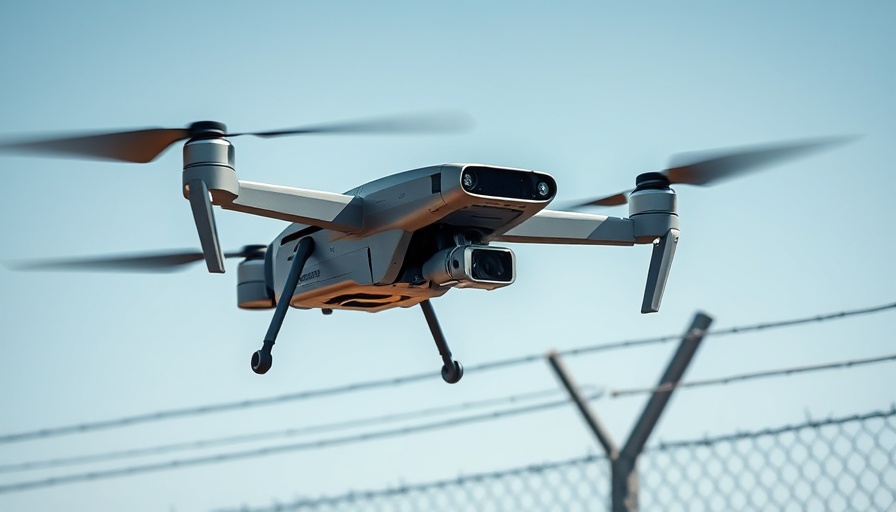
Drone Threats: A New Era of Contraband in Prisons
The use of drones to smuggle contraband into U.S. prisons is a growing threat that has caught the attention of lawmakers and law enforcement. In a recent Senate hearing, serious discussions were held regarding the challenges that these unmanned aerial vehicles pose, not only to correctional facilities but also to public safety in general.
In 'Drones Are Bringing Contraband To Inmates In Prisons—Senator Asks Experts How To Stop It,' the discussion highlights a pressing issue regarding drone incursions in correctional facilities, prompting us to analyze its implications and potential solutions.
Understanding Drone Incursions
As noted by Senator Amy Klobuchar, the alarming rise in drone-related incidents in recent years has raised eyebrows among security officials. Over 160 drone sightings near airports in just 2020 forced aircraft to take evasive measures, indicating a growing concern regarding airspace safety and the misuse of drone technology.
These small flying machines, while useful for agricultural monitoring and disaster management, have also become tools for criminals seeking to deliver drugs, weapons, and other illegal items directly into prisons, circumventing traditional security measures. The implications of this dual-use technology urge lawmakers to take decisive action.
Immediate Actions Required for Security
According to testimonies from correctional experts, the Bureau of Prisons (BOP) is making strides by implementing drone detection technology in maximum security facilities, but the measures are still reactive rather than proactive. This gap continues to threaten the safety of staff and inmates alike, as well as the integrity of the penal system.
Senator Klobuchar emphasized the need for the Transportation Security Administration (TSA) to acquire the explicit authority to actively guard against drone incursions targeting vulnerable infrastructures such as prisons and airports.
Federal and State Collaboration is Vital
The hearing revealed an urgent necessity for collaboration among federal, state, and local law enforcement agencies to combat this growing threat effectively. Experts fielded concerns and suggested expanding existing laws, particularly the 2018 act regarding drone detection and mitigation technologies. Empowering state and local units with the authority and necessary resources will be crucial in preventing the escalation of drone-related crimes.
Long-Term Risks and Threats
The potential risks drone contraband poses extend beyond just physical items. Weaponized drones, for instance, pose significant threats to critical infrastructure, as highlighted by incidents of planned attacks. As stated in the testimonies, plots foiled by federal law enforcement highlight this very danger, where sophisticated drone operations were aimed at the FBI, local police stations, and even energy grids.
The urgency behind thwarting these threats should not be taken lightly; the convergence of technology and crime is a factor that requires immediate federal action and comprehensive security legislation.
A Call for Proactive Legislative Measures
In light of these discussions, the reauthorization of security measures established in the 2018 act is imperative. Moreover, deliberations should pivot towards establishing clear guidelines that define how drone technologies can be employed for security without infringing on privacy or civil rights.
Enhancing counter-drone capabilities must be part of a larger strategy to safeguard public properties and reduce the pathways that facilitate illegal activity within our prison systems.
What Can Be Done?
The voices from Capitol Hill urge a multidimensional approach, combining expertise from different sectors while applying pressure for legislation that safeguards against drone abuse. It's essential for the community, legislators, and technology developers to unite in creating a path forward that blends security with innovation.
As noted, the problem of drone-incurred contraband is not isolated. It is a national concern demanding a collective response. Educating the public on this issue may empower communities to advocate for the enforcement of effective laws.
To remain updated on this critical national issue, engage with developments in legislation and support measures that aim to protect the integrity of our justice system.
 Add Element
Add Element  Add Row
Add Row 



Write A Comment